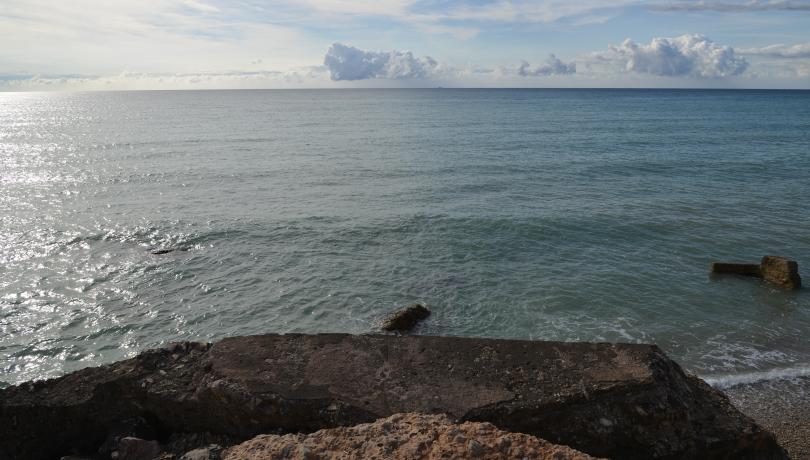Institute researchers have participated in the development of a work that identifies the scientific needs and challenges currently facing the Mediterranean region.

Researchers from the Institut de Ciències del Mar (ICM) of Barcelona have participated in the development of the white paper “The Mediterranean Sea We Want”, which has been released in the Ocean and Coastal Research journal recently.
The paper presents the main science needs, gaps, and challenges currently facing the Mediterranean region in order to design a bluer and more sustainable Mediterranean Sea within the UN Decade of Ocean Science for Sustainable Development 2021-2030 (the Ocean Decade). A total of 58 authors from 14 different countries participated in its preparation.
A particularly vulnerable environment
The Mediterranean Sea, identified as a climate change vulnerability hotspot, is exposed to natural and anthropogenic threats preventing the region to fully implement the Sustainable Development Goals of the UN Agenda 2030.
According to the experts, the region is suffering from the increased frequency and intensity of extreme events which, together with an increasingly unsustainable management, are affecting the population’s safety. Given this scenario, and in order to ensure a healthy and productive marine environment for future generations in this region, they advocate for transitioning to a sustainable blue economy.
The Ocean Decade
The Ocean Decade framework has offered an unprecedented opportunity to enhance the knowledge base needed for the Mediterranean Sea management, and the paper “The Mediterranean Sea We Want” is a good example of that, since reviews the state of play in the Mediterranean science for each Ocean Decade outcome and identifies research trends and challenges, as well as capacity development needs for the unique environmental and socio-economic conditions of the Mediterranean.
Concretely, the authors make recommendations on knowledge needs and the development of co-design actions. According to them, integrating and improving our scientific knowledge, Ocean Literacy, and ocean observing capacities, building on international cooperation, it will be possible to reach the Mediterranean Sea we want.
For example, in terms of risk and vulnerability, the ICM researcher Esther Garcés points out that “In the case of biological risks, such as those related to biodiversity loss caused by environmental degradation and harmful algal blooms, the main limitation is the lack of biological data and observation systems for large stretches of the northern Mediterranean coasts and for most eastern and southern coastal areas”.
This white paper serves the development of the Ocean Decade Programme SciNMeet, subtitled The Science We Need for the Mediterranean We Want, endorsed by the Intergovernmental Oceanographic Commission from the UNESCO.